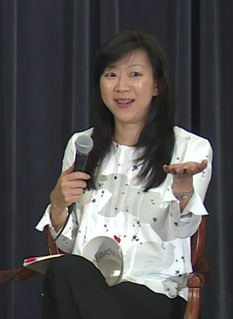A Quote by John McWhorter
Loving your language means a command of its vocabulary beyond the level of the everyday.
Quote Topics
Related Quotes
To be functionally fluent in a language, for instance, in most cases you need about 1,200 words. To acquire a total of vocabulary words, if you really train someone well they can acquire 200 to 300 words a day, which means that in a week they can acquire the vocabulary necessary to speak a language.
One of the problems with watching TV is that you've got a fairly low level of language operating all the time. Quite a small vocabulary and really no conceptual or abstract thinking. That's an issue. If you've got a wide vocabulary, you can learn. The complexities of grammar, in themselves, force you to think about time in a particular way. Force you to widen your outlook on the world.
The clerical work is par for the course. "Keep on file in numerical order" means throw in wastebasket. You'll soon learn the language. "Let it be a challenge to you" means you're stuck with it; "interpersonal relationships" is a fight between kids; "ancillary civic agencies for supportive discipline" means call the cops; "Language Arts Dept." is the English office; "literature based on child's reading level and experiential background" means that's all they've got in the Book Room; "non-academic-minded" is a delinquent; and "It has come to my attention" means you're in trouble.
We have also obtained a glimpse of another crucial idea about languages and program design. This is the approach of statified design, the notion that a complex system should be structured as a sequence of levels that are described using a sequence of languages. Each level is constructed by combining parts that are regarded as primitive at that level, and the parts constructed at each level are used as primitives at the next level. The language used at each level of a stratified design has primitives, means of combination, and means of abstraction appropriate to that level of detail.
The mind is incredible. Once you've gained mastery over it, channeling its powers positively for your purposes, you can do anything. I mean anything. The secret is to make your mind work for you not against you. This means constantly being positive. Constantly setting up challenges you can meet either today, next week, or next month. "I can't..." should be permanently stricken from your vocabulary, especially the vocabulary of your thoughts. You must see yourself always growing and improving.






































